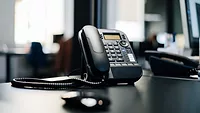FCC Proposes $225 Million Fine for 1 Billion Robocalls

The FCC says that Rising Eagle made approximately 1 billion spoofed robocalls across the country during the first four-and-a-half months of 2019 on behalf of clients that sell short-term, limited-duration health insurance plans. Spiller admitted to the USTelecom Industry Traceback Group that he knowingly called consumers on the Do Not Call list as he believed that it was more profitable to target consumers. He also admitted that he made millions of calls per day, and that he was using spoofed numbers.
The robocalls falsely claimed to offer health insurance plans from well-known health insurance companies such as Aetna, Blue Cross Blue Shield, Cigna and UnitedHealth Group, the FCC says.
In addition, says the FCC, beginning in 2018, there was an increase in consumer complaints and robocall traffic related to health insurance and other healthcare products. The Traceback Group determined that approximately 23.6 million health insurance robocalls were crossing the networks of the four largest wireless carriers each day. The FCC Enforcement Bureau’s investigation found that a large portion of this unwelcome robocall traffic was driven by Rising Eagle, says a release.
The Truth in Caller ID Act prohibits manipulating caller ID information with the intent to defraud, cause harm, or wrongfully obtain anything of value. The FCC’s investigation found that the robocalls made by Rising Eagle were spoofed in order to deceive consumers, targeted millions of Do Not Call list participants and were received on many wireless phones without prior consumer consent. The scam also caused the companies whose caller IDs were spoofed to become overwhelmed with angry call-backs from aggrieved consumers. At least one company was hit with several lawsuits because its number was spoofed, says the FCC, and another was so overwhelmed with calls that its telephone network became unusable.Looking for a reprint of this article?
From high-res PDFs to custom plaques, order your copy today!






